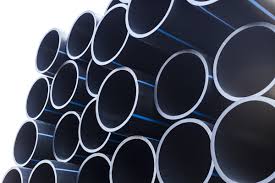Nov . 11, 2024 23:53 Back to list
conduit pipes
Understanding Conduit Pipes An Essential Component in Modern Infrastructure
Conduit pipes are critical elements in various industries, particularly in construction and electrical engineering. Serving as protective channels for electrical wiring, these pipes ensure safety, durability, and protection from environmental elements. This article delves into the significance of conduit pipes, their types, materials, applications, and the reasons they are indispensable in modern infrastructure.
What are Conduit Pipes?
Conduit pipes are hollow tubes designed to protect and route electrical wiring in a building or any other construction site. They provide a safe passage for electrical conductors while reducing the risk of physical damage, water infiltration, and electromagnetic interference. By housing electrical wiring, conduit pipes also prevent potential hazards such as short circuits, which could lead to electrical fires.
Types of Conduit Pipes
There are various types of conduit pipes, each suited for different applications and environments. The most common types include
1. Rigid Metal Conduit (RMC) Made of thick, galvanized steel, RMC provides excellent protection against impact, making it ideal for outdoor and industrial installations.
2. Intermediate Metal Conduit (IMC) Lighter than RMC but still offering substantial protection, IMC is suitable for a variety of settings, providing a balance between durability and weight.
3. Electrical Metallic Tubing (EMT) Also known as thin-wall conduit, EMT is malleable and easy to install. It is commonly used in indoor applications due to its lightweight nature and basic protection.
4. PVC Conduit Constructed from plastic, PVC conduit is highly resistant to corrosive elements and is often used in underground or damp environments. It's lightweight and easy to handle, making installation simpler.
5. Flexible Conduit This type is made of flexible material that can bend into various shapes, allowing installation in tight spaces. It’s often used in settings where movement or vibration is anticipated.
Materials Used in Conduit Pipes
The choice of material for conduit pipes is crucial for the performance and longevity of electrical systems
. Common materials include- Steel Known for its strength and durability, steel conduit provides excellent protection from physical damage and is often used where impact resistance is necessary.
- Aluminum Lightweight yet strong, aluminum conduits resist corrosion and are suitable for outdoor applications where exposure to moisture can be a concern.
conduit pipes

- Plastic PVC and other polymers offer resistance to corrosion and are ideal for environments that may be exposed to chemicals or water. However, they may not be suitable for high-temperature applications.
Applications of Conduit Pipes
Conduit pipes have diverse applications across various sectors
- Residential Electrification In homes, conduit pipes help protect wiring from physical damage, ensuring safety and reliability.
- Commercial Buildings Office buildings and retail spaces utilize conduit pipes to organize and protect electrical wiring systems. They also help in meeting regulatory codes and standards.
- Industrial Use Factories and manufacturing plants rely heavily on conduit systems to safeguard complex wiring setups that power machinery and equipment.
- Telecommunications Conduit pipes play a significant role in the telecommunications sector by protecting fiber optic cables and other wiring systems used in data transmission.
Why Conduit Pipes Matter
The importance of conduit pipes cannot be overstated. Here are a few reasons why they are essential
1. Safety By protecting electrical wiring from external threats, conduit pipes play a vital role in enhancing safety within structures. They help prevent accidental contact with live wires, significantly reducing the risk of electrical shocks.
2. Durability Conduit systems provide long-lasting protection against environmental factors, including moisture, dust, and impacts, prolonging the life of electrical systems.
3. Organized Infrastructure Conduit pipes help maintain an organized electrical system, making it easier to identify, manage, and replace wires when necessary.
4. Regulatory Compliance Many building codes require the use of conduit for certain applications. Adhering to these standards ensures legality and safety in electrical installations.
In conclusion, conduit pipes are a fundamental component of modern infrastructure, offering crucial protection and organization for electrical wiring systems. By understanding their types, materials, and applications, construction and engineering professionals can make informed choices that enhance both safety and efficiency in their projects. As industries continue to evolve, conduit pipes will remain an indispensable asset in safeguarding electrical systems.
-
Durable DN100 PVC Well Casing Pipes for Reliable Water Supply
NewsAug.16,2025
-
HORON 25mm PPR Plumbing Pipes: Durable, Leak-Proof Water Systems
NewsAug.15,2025
-
Durable UPVC Column Pipes for Submersible Pumps | Efficient Water Flow
NewsAug.14,2025
-
DN100 PVC Well Casing Pipes - Durable & Corrosion-Resistant
NewsAug.13,2025
-
Flexible 32mm HDPE Pipes in Coil | Durable Water & Gas Lines
NewsAug.12,2025
-
DN50 HDPE Pipes in Coils: Flexible, Durable & Easy Install
NewsAug.11,2025

